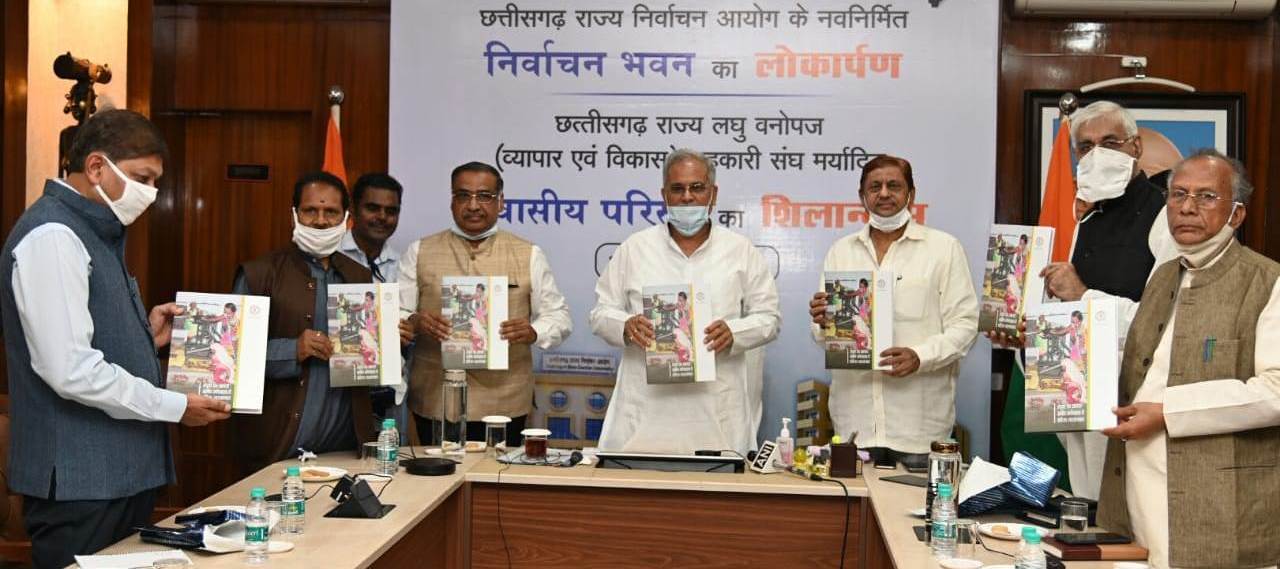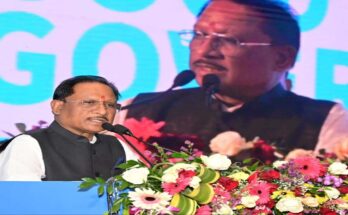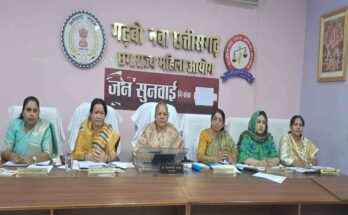Raipur, 30 December 2020. Chief Minister Mr. Bhupesh Baghel released a book on Joint Forest Management titled ‘Joint Forest Management: Women Swavalamban in Rural Economy’ published by Forest Department at his residence office here today. The Chief Minister congratulated the Forest Minister Mr. Mohammad Akbar and departmental officers and employees on the publication of the book. He said that joint forest management has increased public participation in the protection and development of forests. Women are becoming self-reliant by engaging in various activities of harvesting and processing of forest produce. 52 minor forest produce are being purchased in the state on support price and value addition is also being done in the forest produce. This has given huge economic support to the families dependent on forest produce. Women have also made their strong participation in these works. Women are becoming self-reliant by joining self-help groups by forming self-help groups.
On this occasion Forest Minister Mr. Mohammad Akbar, Agriculture Minister Mr. Ravindra Choubey, Home Minister Mr. Tamradhwaj Sahu, Panchayat and Rural Development Minister Mr. T.S. Singhdev, School Education Minister Dr. Premasay Singh Tekam, Urban Administration and Development Minister Dr. Shiv Kumar Dahria, Food Minister Mr. Amarjeet Bhagat, Women and Child Development Minister Mrs. Anila Bhendia, Industry Minister Mr. Kavasi Lakhma, Public Health Engineering Minister Mr. Guru Rudra Kumar , Higher Education Minister Mr. Umesh Patel, Parliamentary Secretary Mr. Shishupal Sori and Mr. Chandradev Rai, President of Chhattisgarh State Housing Board, Mr. Kuldeep Juneja, President of Chhattisgarh State Text Book Corporation Mr. Shailesh Nitin Trivedi, Chief Secretary Mr. Amitabh Jain, Nava Raipur Atal Chairman of the Urban Development Authority Mr. RP Mandal and Principal Chief Conservator of Forests Mr. Rakesh Chaturvedi were present along with many senior officials.
It is noteworthy that the involvement of forest dwellers in the protection and development of forests has been encouraged through joint forest management in Chhattisgarh. Joint forest management has given a new and strong dimension to the rural economy of the state. The state has around 30 lakh members of 7887 forest management committees under joint forest management. This book covers the functions of forest management committees, Information about basic facilities and employment-oriented works has been published in the village. The forest of the state has proved to be a lifeline for the villages situated within a radius of five kilometers from the forests, and the joint forest management policy is working like a livelihood here. Joint forest management has ensured sustainable development and efficient management of forests where active participation of people. There has been a significant increase in the income of collectors for the purchase of small forest produce on support price and raising the rate of tendu patta collection to four thousand rupees per bag. In this book, the works of treatment of river-drains under Narva scheme are also published by the Forest Department in Narva, Garwa, Ghurwa, Bari scheme. Along with promoting water conservation and promotion through Narva development works, the residents of forest area are getting employment opportunities. In the Bari scheme, the works of the treatment of the rivers and drains being carried out under the Narva scheme by the Forest Department have also been published. Along with promoting water conservation and promotion through Narva development works, the residents of forest area are getting employment opportunities. In the Bari scheme, the works of the treatment of the rivers and drains being carried out under the Narva scheme by the Forest Department have also been published. Along with promoting water conservation and promotion through Narva development works, the residents of forest area are getting employment opportunities.
Large number of women self-help groups are involved in economic activities such as lac farming, honey collection, lac churid making, whip farming, bio fertilizer production, bamboo processing, sabi rope manufacturing, abarbatti construction, donna-leaf construction, small forest produce and processing Are moving rapidly towards self-sufficiency. In the forest areas, many women self-help groups are involved in dairy, mushroom production, vermi compost making, vegetable production, fisheries, sewing, forest medicine processing, aloe processing, organic rice production. Sarudih tea garden in Jashpur is a women’s self-help group involved in tea cultivation. Coffee has been planted in Manora.
Raipur: Chief Minister Bhupesh Baghel released the book ‘Joint Forest Management: Women Self-Reliance in Rural Economy’.




